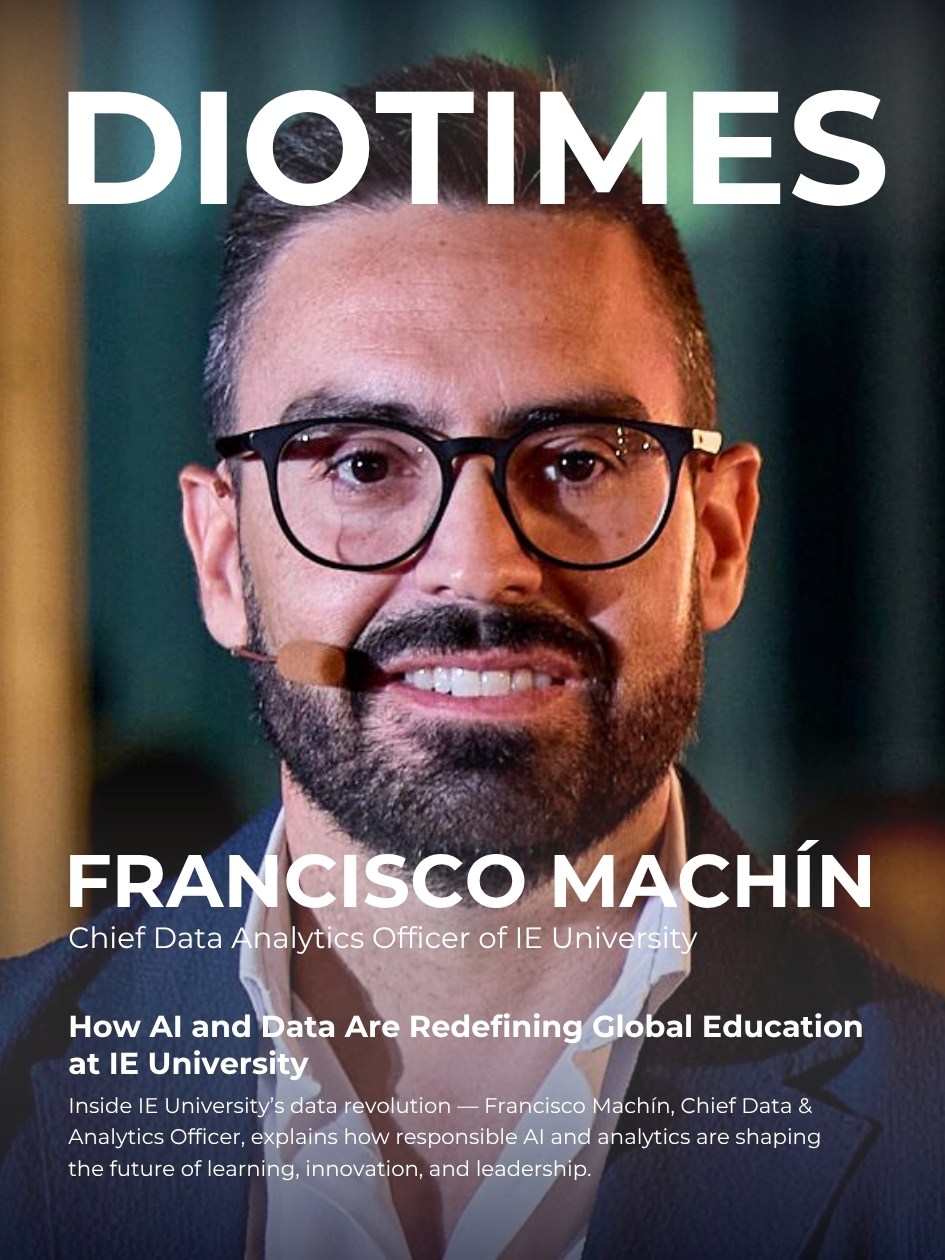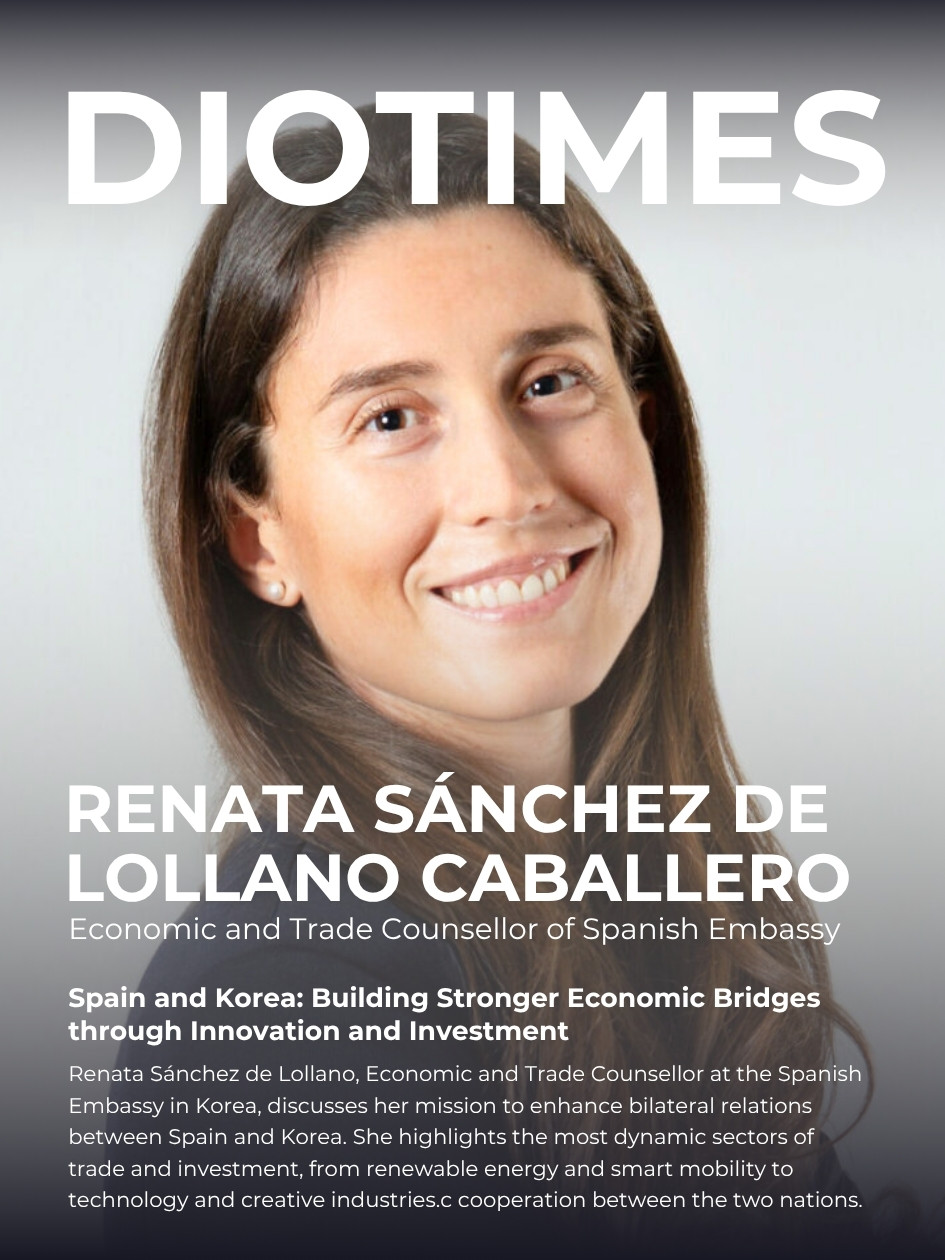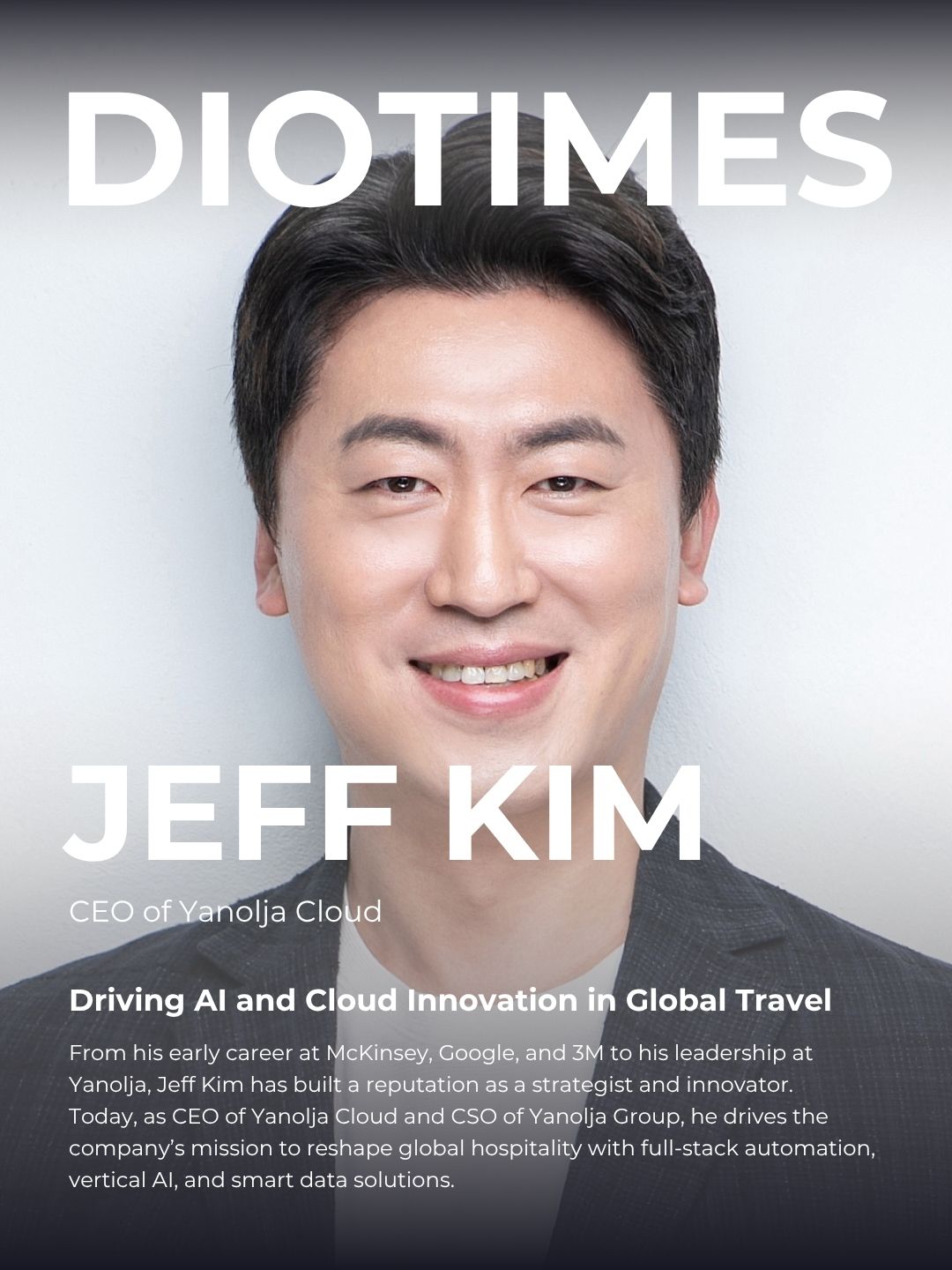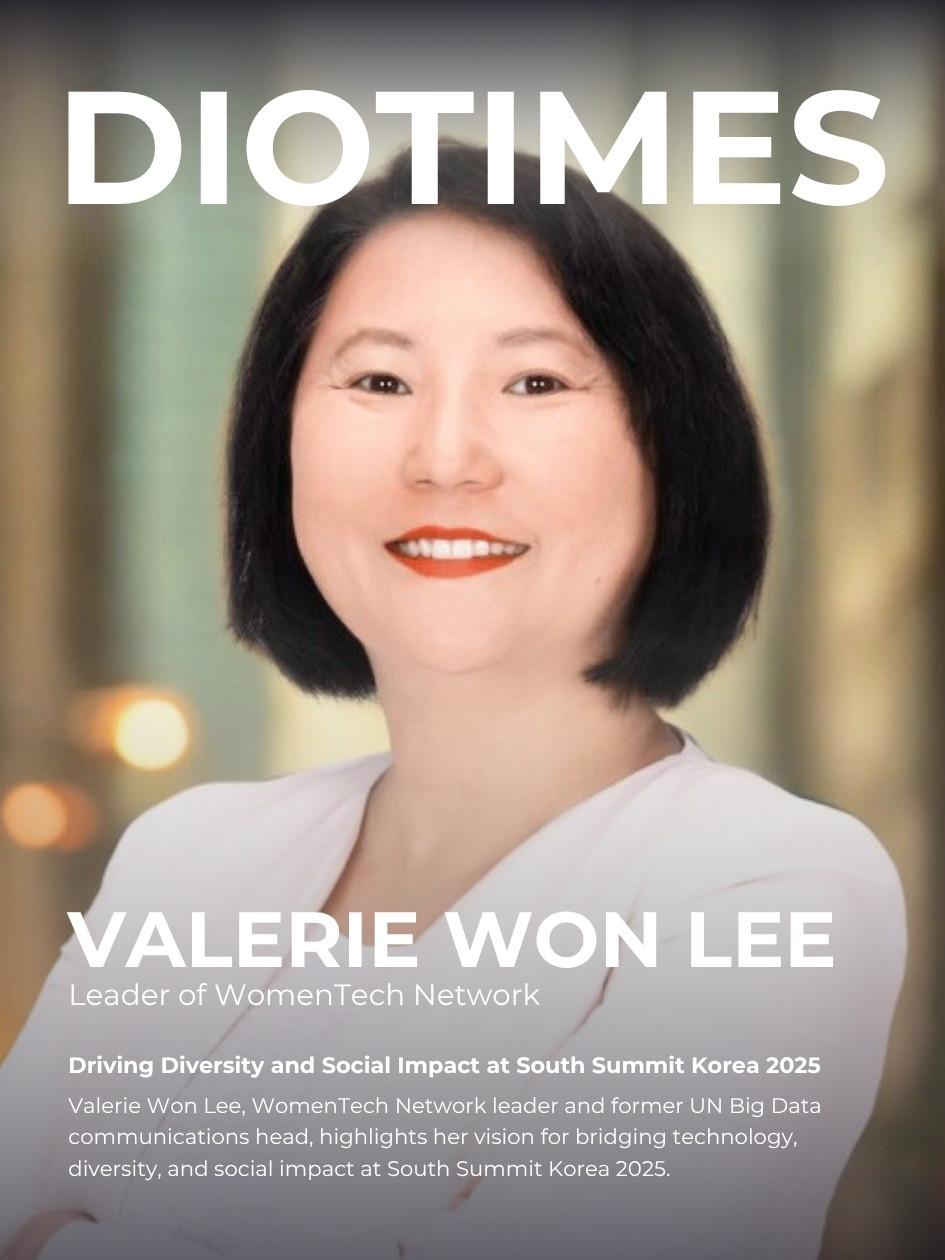Personal & Leadership
What motivated you to transition from consulting at Accenture into a leadership role in data and analytics at IE University?
The move was equal parts conviction and opportunity. I’ve always been passionate about education as a force multiplier for people and society, and I’m energized by how AI, data, and technology can redefine learning at scale. My years in strategy consulting at firms like Accenture Strategy and Oliver Wyman taught me to see across industries and identify leverage points for transformation. Coupling that strategic lens with a hands-on technical background has allowed me to bridge two worlds—business strategy and data-driven technology. IE University is where those worlds meet: a place that values entrepreneurial execution while demanding a rigorous, evidence-based approach. It’s the kind of environment where a data and AI leader can have real, measurable impact.
How has your personal background in technology, consulting, and global business influenced the way you design and implement data strategies in higher education?
Consulting at top strategy houses teaches you to “elevate the discourse”: define problems clearly, look beyond the immediate horizon, and architect change that endures. I bring that to IE by treating education as an ecosystem, not as a set of standalone processes. Practically, that means pairing data architecture decisions—governance, quality, privacy, interoperability—with operating-model choices such as stewardship roles, change management, and incentives. In consulting, I often used technologies like blockchain, analytics, and early AI as transformation levers; today I apply the same playbook at IE, only the “client” is our entire community of candidates, students, alumni, faculty, and corporate partners.
What leadership principles guide you in fostering a data-driven culture across IE University?
My leadership philosophy lies at the intersection of strategy and technology—because that’s where durable change happens. I’m passionate about redefining education through AI, data, and technology, but passion only translates into impact when vision connects with execution. My consulting years at Accenture Strategy and Oliver Wyman shaped that mindset: see the whole system, design the levers, and execute with discipline.
My playbook at IE has five pillars:
Purpose → outcomes. We start with human outcomes—better learning, better research, better careers—and define a clear North Star with time-bound metrics. Data is not a dashboard; it’s a way to improve lives.
One source of truth. We build trusted, organization-wide data foundations (governance, quality, definitions) so every area, from Admissions to Careers, acts on the same reality. This eliminates silos and creates compounding benefits across the student lifecycle.
Productize data & AI. We treat datasets and AI models like products—with owners, roadmaps, SLAs, and feedback loops. That mindset keeps us focused on adoption and measurable outcomes, not technology for its own sake.
Bilingual teams. I hire and develop talent that can speak both “business” and “data.” That’s how strategic intent turns into implemented solutions and how faculty, staff, and leadership stay aligned.
Responsible speed. We iterate quickly—pilot, measure, scale—but always embed ethics, privacy, and academic integrity. In education, velocity matters; responsibility matters more.
This is how I unite two worlds: strategic clarity from consulting and technical depth in data and AI. At IE, that combination has enabled us to move fast, stay aligned, and create tangible value for students, faculty, and the institution.
About IE University & Data Strategy
What was your original vision for data and analytics at IE University, and how has it evolved since you took on the role of Chief Data & Analytics Officer?
The first horizon was to establish one trusted source of truth—a unified, accessible data backbone that allows every function to make confident, timely decisions. The second horizon is responsible AI at scale, integrating AI into core journeys such as recruitment, learning, and careers to empower faculty and students alike. Our vision has evolved from “platform first” to “outcomes first”: data and AI as invisible infrastructure that personalizes the IE experience while safeguarding dignity, privacy, and academic integrity. IE’s institution-wide adoption of advanced AI tools reflects this direction and keeps us among the sector’s digital leaders.
How does IE University differentiate itself from other global institutions in using data and AI to enhance the student experience?
Two things: speed with responsibility, and breadth with depth. We move quickly—piloting, measuring, and industrializing what works—yet always with strong governance and faculty partnership. IE has been recognized for its digital leadership and has formally integrated cutting-edge AI into the academic ecosystem, from student services to instructional support. The result is a more adaptive experience: data-informed advising, AI-supported learning tools, and insights that help faculty tailor instruction without compromising academic rigor.
What were some of the biggest challenges you faced in building a data-driven organization within a traditional higher-education environment?
IE’s entrepreneurial DNA is a strength, but it can also create information silos as departments move fast with local solutions. Our biggest challenge was aligning incentives and standards so that teams continue to innovate—but on top of a shared, trusted data foundation. We built a federated stewardship model, harmonized key definitions, and invested heavily in data quality and accessibility. The cultural shift has been just as important as the technical one: shared metrics, shared wins.
Innovation, Startups & Ecosystem
South Summit is about startups and innovation. What role can data and analytics play in helping startups scale and compete globally?
Data is a startup’s greatest advantage—if you treat it like a product, instrument from day one, and close the loop between insight and action. Concretely:
• Market listening & product–market fit: Tools for traffic, search, app usage, pricing, and sentiment help founders prioritize segments and geographies.
• Operational excellence: Routing, matching, and supply–demand balancing are data problems, solved through experimentation and simulation.
• Capital efficiency: Unit-economics dashboards and cohort analytics enable disciplined, evidence-based growth.
From your perspective, what are the most important differences between the Spanish and Korean startup ecosystems?
Korea is extraordinarily strong in product and deep tech, built on decades of high R&D intensity, world-class engineering, and a culture of execution. It consistently ranks among the world’s top innovation nations and continues to climb the Global Innovation Index. At the same time, the government has been deliberately internationalizing the ecosystem through initiatives such as the K-Startup Grand Challenge, which attract foreign founders and foster global links.
Spain, meanwhile, excels at connecting business with markets. It serves as a natural bridge between Europe and Latin America, with programs and investment ties that make Spain a gateway for cross-Atlantic scaling. That connectivity, bilingual talent, cultural proximity, and institutional programs create powerful routes to global demand.
The best outcomes come from combining these strengths: Korea’s deep-tech precision and product discipline with Spain’s market connectivity and LATAM access.
For early-stage startups, what should be the first strategic considerations when building a data-driven business model?
• Instrument everything (privacy-first): log events, define a clear data model, and capture feature usage from day one.
• Define your North Star and guardrails: one outcome metric plus cohort-level unit economics.
• Build a lean data stack: warehouse/lakehouse, reverse ETL, experimentation, and observability—keep it simple and cost-aware.
• Operationalize market listening: web and app analytics, pricing intelligence, VOC/social sentiment—turn “listening” into actionable backlog inputs.
• Governance as enablement: access controls, data contracts, and consent management; compliance is a growth enabler, not a blocker.
• Talent mix: a product-minded analytics lead plus a versatile data engineer beats a large, unfocused team early on.
Growth & Future Outlook
How has IE University’s investment in data and analytics impacted student recruitment, retention, and career success?
Data and AI give us the intelligence to engage each candidate or student with the right content at the right moment—and to do so respectfully and at scale.
• Recruitment & admissions: We unify signals—interactions, interests, intent, and prior academic data where appropriate—into a single candidate profile. Propensity and “next-best-action” models help us decide when to reach out and what to share—program insights, faculty content, alumni stories—so communication is timely, relevant, and personal rather than generic.
• Student experience: Once enrolled, the same data foundations support personalized nudges and resources aligned with each student’s goals—study support, course pathways, co-curricular opportunities. The goal is to enrich the human connection between students and faculty by freeing time from routine tasks and amplifying insight with evidence.
• Careers: Our Careers team uses internally built AI tools to continuously monitor the global labor market—tracking skills demand, role evolution, and employer needs. That intelligence powers a dynamic “skills–opportunity fit” for students: guidance on courses, projects, and internships that increase employability; better matching to roles and companies; and targeted interview preparation.
Across all three areas, we apply privacy-by-design and ethical guardrails. The technology exists to enhance human judgment—of our staff, faculty, and students—not to replace it. That’s how IE uses data and AI as true engines for a more adaptive and humane educational experience.
Looking ahead, what are the most significant data and AI trends that you believe will transform higher education and corporate innovation in the next five years?
• Multi-agent AI in the enterprise: Specialized agents orchestrated to tackle repetitive knowledge tasks, integrated with tools and guardrails. This will compress cycle times and elevate human focus.
• Responsible personalization: Privacy-preserving learning (synthetic data, federated methods) that adapts to each student while protecting rights.
• Assessment & skills graphs: Competency-level feedback loops aligned to labor-market signals, enabling modular learning and micro-credentials.
• Human-in-the-loop reinforcement: Faculty and staff “teach” institutional agents via structured feedback, improving quality over time. Surveys of LLM-based multi-agent systems point to rapid advances in coordination, tooling, and reliability.
What message would you like to share with Korean startups and investors as you participate in South Summit Korea 2025?
This is a unique moment: Korea’s deep-tech strength meets a global platform like South Summit, now hosted in Suwon. My message is simple—think globally, build responsibly, and use data as your compass. Seek partners that open new markets—Spain and Latin America included—and treat AI as a teammate, not magic. If we combine Korea’s excellence in product with Spain’s market connectivity, we can create the kind of cross-regional innovation that succeeds worldwide.






